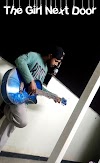I won't mention anyone by name in this article. I'm using my own name—Puvvu—and sharing this story from a third-person perspective.
“What you see isn’t always what they meant. Misunderstandings are often born from unseen emotions and unspoken fears.”
Puvvu's World
A Story of Perception and Misunderstanding
Puvvu is a college student known for his vibrant smile, witty humor, and carefree attitude. He lights up any room he walks into, often lifting the spirits of those around him. But while his loved ones see his true nature, society paints a different picture. This is a story about how perceptions can twist intentions—and how misunderstood a person can be, depending on who’s watching.

1. The Good Friend vs. The Troublemaker
One afternoon, Raghu—Puvvu’s best friend—was feeling low. His favorite actor's movie had just released, but he didn’t feel like going. Understanding his friend’s mental state, Puvvu skipped class and took him out—maybe to a movie, maybe on a peaceful long ride. It wasn’t about bunking lectures—it was about being there when someone needed it most.
To Raghu, that act meant everything. But to the college principal, it was an act of irresponsibility. The absence on the attendance sheet defined Puvvu as a careless rebel. The friendship behind the action was unseen—judged only through the narrow lens of rules.
2. The Hero Brother vs. The Rowdy Fellow
One evening, Puvvu’s sister Priya was being harassed by a group of boys. Without a second thought, he stepped in. Words escalated into fists—not out of aggression, but out of protection.
To Priya, he was her guardian angel. But to neighbors and onlookers, he was a violent troublemaker. The “why” didn’t matter—only what they saw on the surface.
3. The Pure-Hearted Friends vs. The Reckless Lovebirds
At a bus stand, Puvvu sat with a close female friend, talking about their goals and future. There was nothing more than mutual respect between them. But students nearby and even a few teachers whispered: “Look at them—so shameless.”
They didn’t care about the truth. The moment looked “wrong,” and that was enough to paint a false narrative.
4. The Fun Party vs. The Alcoholic Reputation
At a reunion, Puvvu and his friends cracked jokes, acted silly, and yes—shared a few drinks. Just one occasion of celebration, nothing more. But someone saw it, and the next day, society labeled him a drunkard. “He’s always like that,” they said, based on a single glance, a single night.
No one asked what really happened. Judgments are easier than conversations.
5. The Job Seeker vs. The Irresponsible Boy
For months, Puvvu tirelessly searched for jobs—sending resumes, attending interviews, upgrading his skills. But with the job market shrinking and industries under strike, the doors kept closing. It wasn’t for lack of effort—it was the climate.
His family knew the truth. They saw the exhaustion, the silent battles. But outsiders saw only that he was jobless. “Lazy,” they said. “Unmotivated.” And again, they were wrong.
We live in a world that judges people based on snapshots—not stories. A single photo holding a cigarette becomes a character flaw. A woman talking to a stranger is suddenly labeled “shameless.”
But reality is layered. What if that photo was part of a film? What if that stranger was just giving directions? Why don’t we ask, before we accuse?
Today, people don’t seek truth. They seek drama. They replace empathy with ego. They replace facts with assumptions.
I am the living example of what it means to be both a hero and a villain—depending on who is watching.
Before you judge—try to understand.








1 Comments
bro fantastic bro. you said the real facts about guys like us. fuck the people they always judge by what they imagine
ReplyDeleteThanks for your feedback. But Kindly do not enter any spam links in the comment box